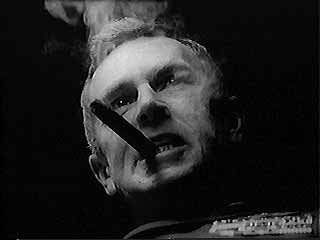Drums and Muskets
On his blog yesterday, ABC News reporter Brian Ross wrote that it has been revealed to him that the government is monitoring his phone calls, along with those of other reporters from Time, the New York Times, and a variety of other news organizations both with and without "Time" in the title.
Now, this is very scary, but hardly surprising anymore. What is scary, to me at least -- very, terribly, awfully scary -- is the reader comments to this blog entry.
Here's a typical quote:
"I hope they catch every government leaker of classified secret information and put them in prison for life. And any reporter publishing known classified secret information should be shot. It is called treason, not first amendment rights."
Here's another:
"I am tired of thae news media leaking secret information in order to hurt PREDIDENT BUSH. I would prosucute the news media leakers for treason like LINCOLN did. We are at WAR with a enemy who whants to take over the world by force or kill all of us"
No doubt these gentleman imagine themselves to be "patriots." Perhaps they are. I really have no idea what a patriot is. When I was a kid, I thought of a patriot as a man in a tricorn hat with a musket, or perhaps a drum. So -- leaving aside the tricorn hats, these comments do seem to be characterized by a kind of drum and musket sensibility. Angry, insistent, and (above all) monotonous rhetoric, and plain force.
The word "patriot" (and its attendant -ism) were long ago appropriated by the drum and musket crowd on the right. I've never considered myself a patriot for precisely this reason -- to me "patriotism" has nothing to do with liberty in any meaningful sense. "Patriotism" signifies a sentimental faith in the inherent virtue of one's government, regardless of what it claims or does. The key thing is the love of authority and its trappings. Interesting that the word descends from "pater" -- the Latin word for "father."
These commenters show us the radical irony of patriotism: a love of authority perfectly combined with a fear (usually expressed as contempt) of liberty.
Now, this is very scary, but hardly surprising anymore. What is scary, to me at least -- very, terribly, awfully scary -- is the reader comments to this blog entry.
Here's a typical quote:
"I hope they catch every government leaker of classified secret information and put them in prison for life. And any reporter publishing known classified secret information should be shot. It is called treason, not first amendment rights."
Here's another:
"I am tired of thae news media leaking secret information in order to hurt PREDIDENT BUSH. I would prosucute the news media leakers for treason like LINCOLN did. We are at WAR with a enemy who whants to take over the world by force or kill all of us"
No doubt these gentleman imagine themselves to be "patriots." Perhaps they are. I really have no idea what a patriot is. When I was a kid, I thought of a patriot as a man in a tricorn hat with a musket, or perhaps a drum. So -- leaving aside the tricorn hats, these comments do seem to be characterized by a kind of drum and musket sensibility. Angry, insistent, and (above all) monotonous rhetoric, and plain force.
The word "patriot" (and its attendant -ism) were long ago appropriated by the drum and musket crowd on the right. I've never considered myself a patriot for precisely this reason -- to me "patriotism" has nothing to do with liberty in any meaningful sense. "Patriotism" signifies a sentimental faith in the inherent virtue of one's government, regardless of what it claims or does. The key thing is the love of authority and its trappings. Interesting that the word descends from "pater" -- the Latin word for "father."
These commenters show us the radical irony of patriotism: a love of authority perfectly combined with a fear (usually expressed as contempt) of liberty.
